
BAC to PHP Converter and calculator


Conversion rates
Convert BAC to PHP
Convert PHP to BAC
BAC to PHP chart
BAC to PHP conversion data: Volatility and price changes of Bacon Protocol in PHP
| Last 24 hours | Last 7 days | Last 30 days | Last 90 days | |
|---|---|---|---|---|
High | 0.02129 PHP | 0.02129 PHP | 0.02335 PHP | 0.1947 PHP |
Low | 0.02049 PHP | 0.01999 PHP | 0.{9}5698 PHP | 0.{9}5698 PHP |
Average | 0 PHP | 0 PHP | 0 PHP | 0 PHP |
Volatility | % | % | % | % |
Change | +3.07% | +0.84% | +950470.20% | -89.22% |
Buy
Sell
| Merchants (trades/completion rate) | Price | Amount/limit Low to high | Payment methods | Zero fees Action |
|---|
Bacon Protocol information
BAC to PHP market statistics
Current BAC to PHP exchange rate
Bacon Protocol to Philippine Peso is rising this week.More info about Bacon Protocol on Bitget
Philippine Peso information
About the Philippine Peso (PHP)
What Is the Philippine Peso (PHP)?
The Philippine Peso, denoted as PHP (₱), is the official currency of the Philippines. It's subdivided into 100 centavos or sentimos in Filipino. The currency symbol is ₱, and it's also commonly abbreviated as "PHP," "PhP," "Php," or simply "P." The Philippine Peso is the sole legal tender in the Philippines, and it is used for all transactions within the country.
The Philippine Peso is issued by the Bangko Sentral ng Pilipinas (BSP), which is the central bank of the Philippines. Established on July 3, 1993, the BSP is responsible for maintaining price stability, ensuring the liquidity and solvency of the financial system, and promoting a balanced and sustainable economic growth in the country.
What Is the History of PHP?
The origins of the Philippine Peso trace back to the Spanish Peso or pieces of eight, introduced in the Philippines via the Manila galleons from the 16th to the 19th century. The pre-colonial Philippines engaged in barter trade, but the inconvenience led to the use of gold, which was abundant in the islands, as a medium of exchange. The earliest known local currency was the "Piloncitos" and gold barter rings.
During the Spanish Colonial period, the Spanish Dollar or silver peso was introduced. The Philippines also minted its own coins, such as the crude copper or bronze coins called "cuartos" or "barrillas." The Spanish gold onza and silver peso established a bimetallic standard, with the peso being worth either the silver Mexican peso or 1/16th of the gold onza.
Post-independence, the Philippines saw various currency reforms, including the introduction of the Central Bank of the Philippines in 1949 and the shift to a free-floating currency system with the New Central Bank Act of 1993.
Notes and Coins of PHP
Today, the Philippine Peso is available in both coins and banknotes. Coins come in denominations of 1, 5, 10, and 25 centavos, and 1, 5, 10, and 20 pesos. Banknotes are issued in 20, 50, 100, 200, 500, and 1,000 pesos. The latest banknote designs feature prominent Filipinos and iconic natural wonders. The BSP produces the country's banknotes and coins at its Security Plant Complex, which is located in Quezon City.
Exchange Rate and Economic Implications
The PHP has experienced fluctuations in its exchange rate, particularly against the US dollar (USD). Historically, it has ranged from below 48 PHP to over 56 PHP per USD. The exchange rate is influenced by various factors, including the Philippines' economic performance, trade balances, and global economic conditions.
Is the Philippine Peso Pegged to the US Dollar?
The Philippine Peso (PHP) currently operates under a floating exchange rate system and is not pegged to the US Dollar (USD). Historically, the PHP was pegged to the USD during the American colonial era and the post-World War II period. However, this changed following significant economic reforms, particularly after the enactment of the New Central Bank Act of 1993, which established the Bangko Sentral ng Pilipinas (BSP). Under the floating exchange rate regime, the value of the PHP is determined by market forces, including factors such as economic performance, inflation, and trade balances. While the BSP may intervene to manage excessive volatility in the currency market, it does not maintain a fixed exchange rate against the USD.
Popular conversions










Hot promotions
How to convert BAC to PHP



Popular Bacon Protocol Converter
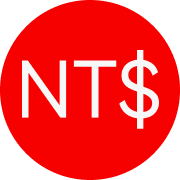
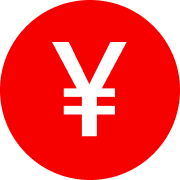
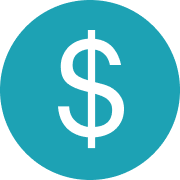
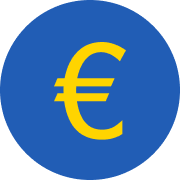


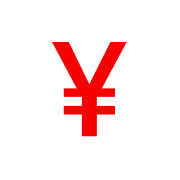

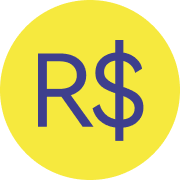
Popular cryptocurrencies to PHP










BAC to PHP Conversion tables
| Amount | 11:52 am today | 24 hours ago | 24h change |
|---|---|---|---|
0.5 BAC | ₱0.01055 | ₱0.01024 | +3.07% |
1 BAC | ₱0.02111 | ₱0.02048 | +3.07% |
5 BAC | ₱0.1055 | ₱0.1024 | +3.07% |
10 BAC | ₱0.2111 | ₱0.2048 | +3.07% |
50 BAC | ₱1.06 | ₱1.02 | +3.07% |
100 BAC | ₱2.11 | ₱2.05 | +3.07% |
500 BAC | ₱10.55 | ₱10.24 | +3.07% |
1000 BAC | ₱21.11 | ₱20.48 | +3.07% |
BAC to PHP FAQ
What factors influence the conversion rate of BAC to PHP?
Popular exchange rates — Crypto-to-Fiat converter
The price of Bacon Protocol in the US is $0.0003706 USD. Additionally, Bacon Protocol’s price is €0.0003184 EUR in the eurozone, £0.0002755 GBP in the UK, C$0.0005088 CAD in Canada, ₹0.03249 INR in India, ₨0.1051 PKR in Pakistan, R$0.002011 BRL in Brazil, and more.
The most popular Bacon Protocol currency pair is the BAC to Philippine Peso(PHP). The price of 1 Bacon Protocol (BAC) in Philippine Peso (PHP) is ₱0.02111.
Popular fiat
Popular areas
Purchase other cryptocurrencies with similar market cap








Other crypto price predictions
 Bitcoin(BTC)Price predictions
Bitcoin(BTC)Price predictions Ethereum(ETH)Price predictions
Ethereum(ETH)Price predictions Celestia(TIA)Price predictions
Celestia(TIA)Price predictions Solana(SOL)Price predictions
Solana(SOL)Price predictions Worldcoin(WLD)Price predictions
Worldcoin(WLD)Price predictions Bittensor(TAO)Price predictions
Bittensor(TAO)Price predictions Dogecoin(DOGE)Price predictions
Dogecoin(DOGE)Price predictions PepeCoin(PEPECOIN)Price predictions
PepeCoin(PEPECOIN)Price predictions Pandora(PANDORA)Price predictions
Pandora(PANDORA)Price predictions ORDI(ORDI)Price predictions
ORDI(ORDI)Price predictionsDiscover more cryptocurrencies























